Texas Performing Arts and Broadway Across America Bring the Great White Way to Campus
You never forget your first time.
Come on along and listen to the lullaby of Broadway.
For Kristen Caskey, BA ’94, who grew up outside of Chicago, it was a touring production of 42nd Street.
The sun’ll come out tomorrow.
For Lauren Reid, BA ’92, Life Member, it was Annie at the Houston Music Hall.
Immigrants—we get the job done!
And for more than a few people reading this, it was surely Hamilton, whether on Broadway (where it first opened in 2015), in your hometown, or, quite possibly, at Bass Concert Hall, where it played in 2019 and 2021.
Texas Performing Arts’ (TPA) flagship venue is where many a lifelong romance with the theater starts, whether that means being a fan who brings the family to Broadway in Austin touring shows or becoming a theater professional like Caskey (a Tony Award-winning producer for Fun Home) and Reid (who, as president of the John Gore Organization, brings those touring shows to Austin and beyond with its Broadway Across America subsidiary).
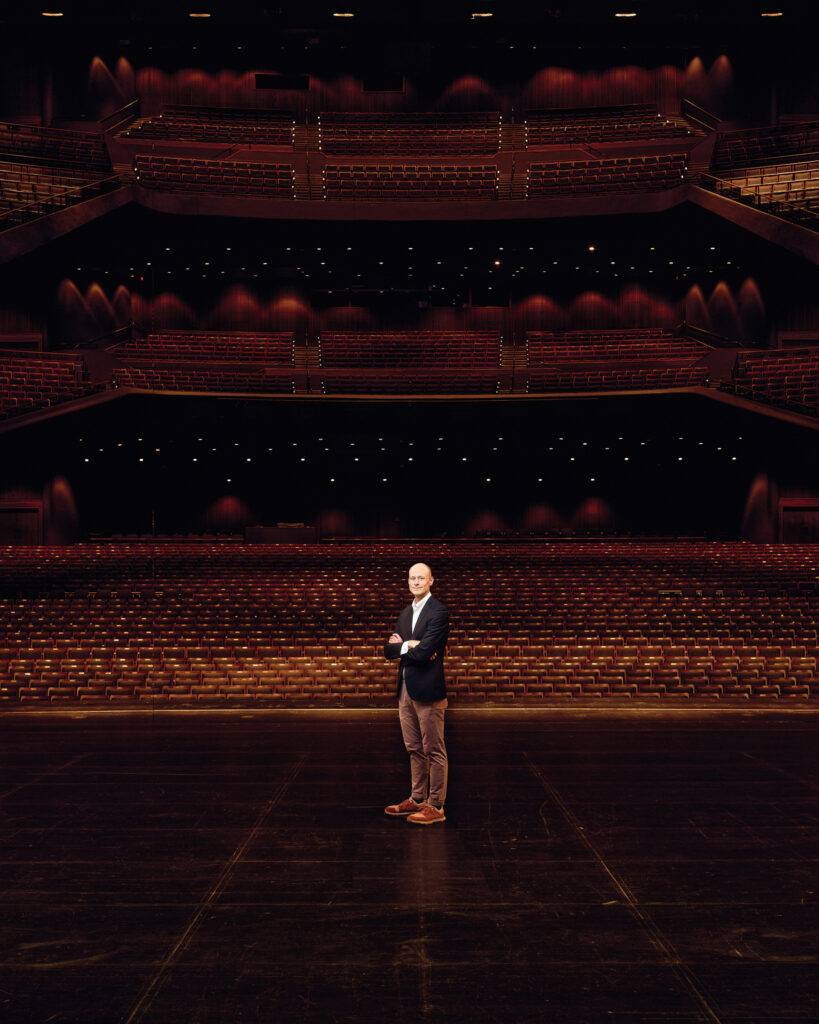
Already the largest university-based performing arts center in the country by budget size, TPA is also, as of 2022, the first campus-based arts organization in the country to join the Broadway League. That’s the industry’s trade association, representing theaters and producers in such areas as collective bargaining and governmental lobbying as well as marketing (both in New York and around the country). It also co-presents the Tony Awards.
As it happens, Caskey and Reid are, respectively, the current and most recent board chairs of the Broadway League. It both is and isn’t a coincidence that two Texas Exes have held the job consecutively: Between the Department of Theater and Dance in the College of Fine Arts and the on-campus presence of Texas Performing Arts as both a programmer and employer, UT students have long found success in theatrical careers. But the driving force behind the partnership between UT and the Broadway League was TPA artistic and executive director Bob Bursey, who took over at the end of 2019. That meant his first few years on the job were mostly about navigating the challenges of the COVID-19 pandemic. Once the country’s theaters had reopened, he got back to his original to-do list.
“Getting Texas Performing Arts connected to the Broadway League was something I realized needed to happen as soon as I got here,” Bursey says. “What we were doing was locally, and perhaps regionally, important, but we weren’t having the kind of national impact that the University strives for in all of its endeavors. What we had here was good, but we had the opportunity to be great.”
League membership further elevates the organization in both tangible and intangible ways—helping with networking, fundraising, and quality of programming, while also providing greater opportunities for both theatergoers and UT students (including UT students who are also theatergoers). It may not be quite on par with the Longhorns sports teams joining the Southeastern Conference, but it’s a similarly significant development.
“I think the arts for the University functions in somewhat the same way [as sports], in that it’s a front porch,” Bursey says. “We have 285,000 people a year coming through our doors, and a lot of those are residents of the greater Austin area. So it’s a huge value that the University provides for the community, and it’s part of what establishes the University’s reputation as a flagship institution nationally.”
Caskey mentions how Paul Libin, a former chairman of the Broadway League as well as a storied producer and theater owner, calls Broadway “the longest road in America.” It’s an idea as much as an actual address, one that encompasses not just Times Square in New York, but Randolph Street in Chicago and Sundance Square in Fort Worth and, yes, Robert Dedman Drive in Austin. Even a Wednesday night performance of Wicked becomes part and parcel of the larger mission of The University of Texas, enriching quality of life on campus, in the city, and beyond.
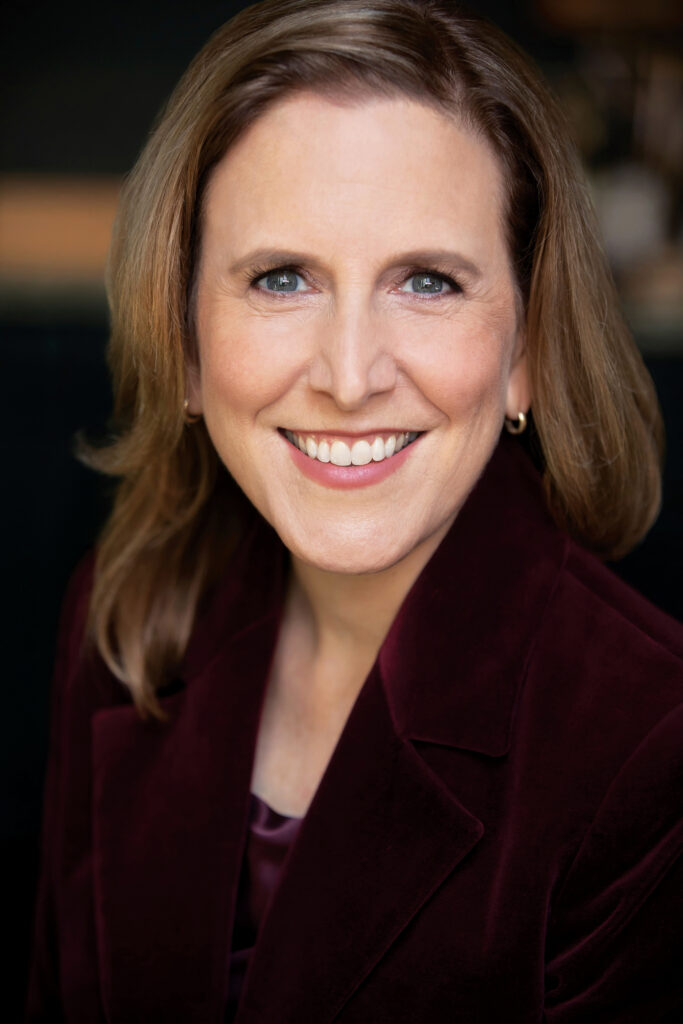
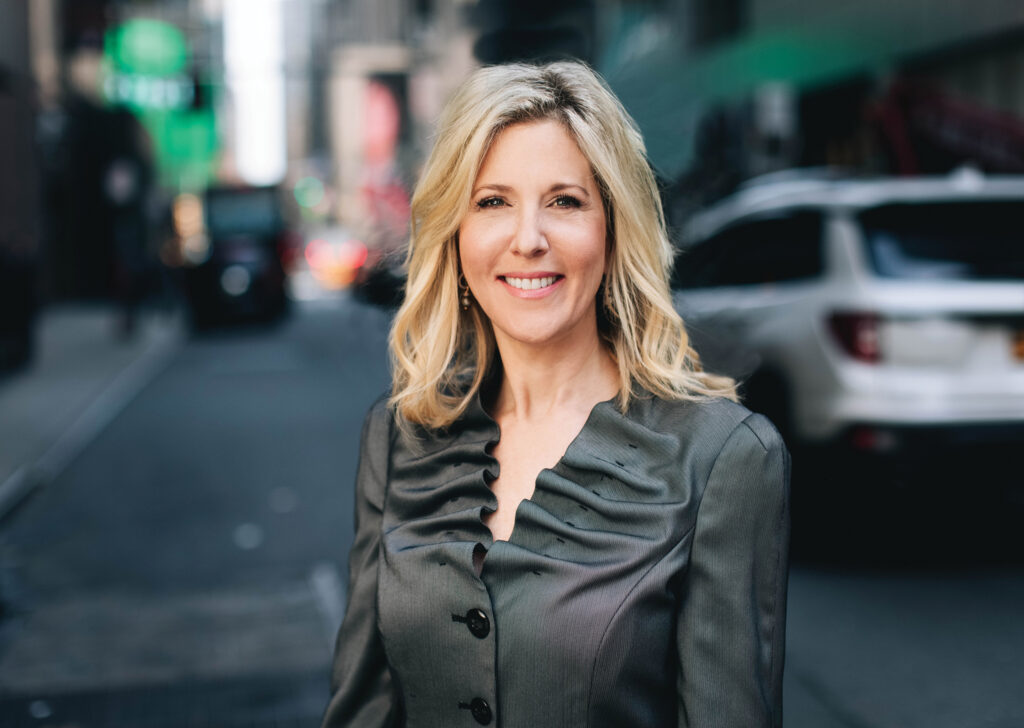

Caskey, who is currently the executive vice president of content and creative at Ambassador Theatre Group, originally came to Austin to study acting but also had an internship in costuming. Now she crosses paths with countless fellow Exes from her time on campus: wardrobe supervisors, costume designers, stage managers. “The gift that TPA—and Broadway presenters across the country—provides for us is our future audience,” Caskey says. “They grow a love of theater in general, but they also show their students what is possible for careers in the arts.”
One such person is Plano native Allison Ebling, BA, BA ’11, Life Member. Her biggest childhood Broadway memory was a 2000 production of Cinderella at Dallas Summer Musicals (now called Broadway Dallas) with Eartha Kitt as the fairy godmother. Now Ebling is working on the Great White Way as head of sound for the Neil Diamond jukebox musical, A Beautiful Noise. Before that, she held the same position on touring productions of Anastasia and Hadestown, as well as an Asian tour (in Jakarta, Indonesia, and Singapore) of Annie.
While at UT, Ebling was one of the first students to work in the Bass audio department in a paid, part-time position. “They kind of threw me into anything that I was interested in doing or willing to do,” she says. She’d work around class schedules so that she could not only observe, but jump in and do more work if the people with the touring production were amenable to it (most of them were). After graduation she was hired by both the Austin-based Stage Alliance, which provides crew for Bass, and the ZACH Theatre, then landed her first tour in 2014.
When kids approach her at the mixing board and ask her how she got started, her time at Bass and TPA is always the answer. In any other city, a student would have to land a job at an off-campus venue to get the same kind of experience.
The other huge impact of TPA joining the Broadway League is at the high school level. Until 2023, Austin was not able to be part of the Jimmy Awards, a competition, now in its 15th year, for the best of regional high school musical theater talent, with nominees from more than 50 regions. More than 100,000 students compete to make it it to the finals in New York every year. Currently, 16 Jimmy Awards alumni are on Broadway and 11 are performing on tour; others are starring in feature films along bona fide movie stars.
Austin’s regional competition, the Heller Awards for Young Artists, has existed for a decade but needed to be sponsored by a League member in order to send its winners to the Jimmy Awards. TPA’s joining finally unlocked this opportunity, with two students going to the finals for the first time this past spring. One of these finalists, Leander’s Langston Lee, won the whole thing (and a check for $25,000 to put towards his education), with a performance that included a song from his role as Dmitry in Rouse High School’s production of Anastasia.
“It was a really special moment,” Bursey says. “We have incredible talent here in Austin. We just need the institutions to step up to the plate and make these connections. And UT is going to be the one to do that, because of our scale.”
Lee, who is now a freshman BFA acting student at Julliard, had never seen live theater—let alone a Broadway show—when he auditioned for Les Misérables as a high school freshman. Now, he’s actually performed on Broadway, as the Jimmy Awards were held at the Minskoff Theatre, which has also hosted the Tony Awards and is the long-time home of The Lion King.
“Being on a Broadway stage was surreal,” Lee says. “There was almost a sanctity to being on a stage with that history, and being able to be a part of it was a magnificent feeling. There was a sort of calm that came with all the lights and people, knowing that this was a moment I had to seize and experience fully. Everything that happened on that stage instantly became an unforgettable memory. The next time, I hope to be on the stage as a resident performer, getting to perform on it every night.”
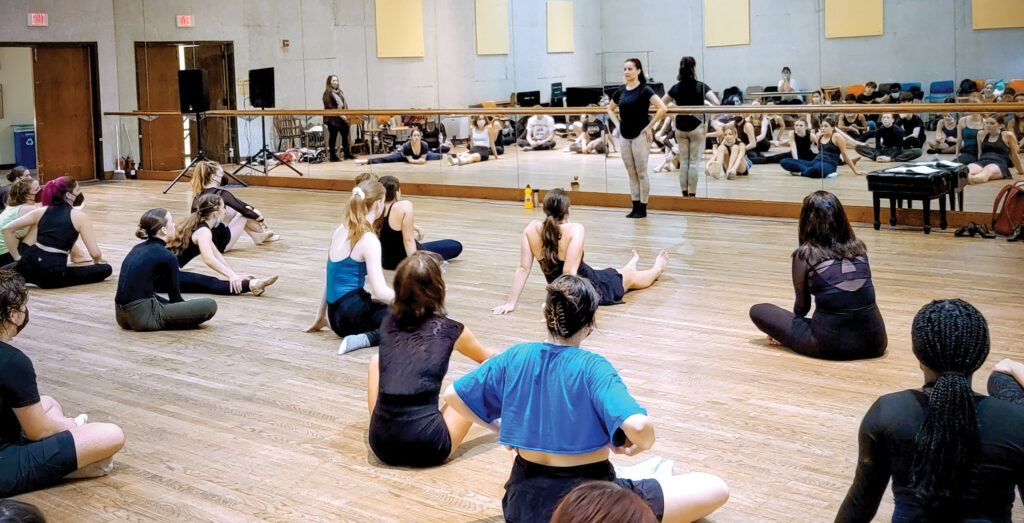
Growing up in rural Virginia, Bob Bursey didn’t get to have an “a-ha” Broadway moment. By the time he was in high school, however, dance and theater were already a vocation, albeit part-time, working backstage on the campus of Hollins College (now University) for a local production company. That eventually led to jobs with the Bill T. Jones/Arnie Zane dance company in New York City, and then the Fisher Center at Bard College, where he helped produce a revival of Oklahoma! that would go on to win him a Tony Award, before he moved to Austin.
This origin story informs Bursey’s work at The University of Texas, which has a large number of first-generation college students and a geographically wide-ranging population. Whether a student comes from the Rio Grande Valley or the Panhandle or the Piney Woods, many of UT’s 53,000 students will have their first live performance experience on campus, especially if they buy TPA’s annual student pass for just $25, which allows access to a limited number of discounted tickets for Broadway in Austin performances, among other benefits.
Since Bursey has taken the job, countless people—donors, alums, potential employers—have told him they saw their first Broadway show at Bass, whether as a student or because their parents took them to see Cats as a kid.
“And once they’ve seen their first show,” says Reid, “maybe that ignites the interest and the curiosity of I wonder how they make the set, or I wonder how these folks are cast, or [I wonder] how choreographers come to be.”
Bursey says Austin is already one of the most successful single-week Broadway touring markets in the country, (versus larger cities that may get two weeks or open-ended runs). And subscribers to TPA’s Broadway in Austin series specifically grew by 25 percent last year. That success runs counter to industry-wide trends (both on Broadway and on tour), where ticket sales are mostly down coming out of the COVID-19 pandemic.
Being in the Broadway League connects TPA to a wider national network, which can lead to better shows (so you might get to see that hot new show in the first year of its tour instead of the second), bigger and better programming, and, ideally, a bump in revenue, funding, and donations. That’s a rising tide that lifts all boats—namely, TPA’s other series, from “Texas Welcomes” (comedy, concerts, and family shows) to its curated performing arts season (more experimental and international shows, including jazz, classical, and dance).
TPA is also involved in the development of original work with local theater artists, providing even more on-campus opportunities for students to observe and participate in the creative process. Around 85 students already work for TPA in paid positions; those who minor in arts management and administration might also end up having Bursey as a professor (he most recently taught a class on fundraising) or Reid as a guest lecturer.
The Broadway League membership means a wider array of education and engagement programs both for students and community members, including post-performance talk backs or cast members visiting a local library or senior center. For students, it can mean more masterclasses, mock auditions, workshops, and shadowing opportunities with the touring professionals—in eager preparation for internships, part-time jobs, and post-grad careers in New York and elsewhere.
“The connection to the Broadway League allows us to develop those [educational] ideas and implement them with touring shows in a more effective way than we could otherwise,” Bursey says. “We have the benefit of knowing what other folks around the country are doing.”
It’s a two-way street—the UT students need the training and employment opportunities, but the theater world needs the new labor force and talent, too. A big part of Broadway and the Broadway League’s current mission is to get younger and more diverse people involved.
Reid gives Bursey most of the credit for making the Broadway League connection happen. “Bob is extraordinary,” Reid says. “He took a great interest in bringing the programs at the University even further than they had been and playing a more significant role within the industry itself.”
Both Reid and Bursey mention being conscious of actually putting the University’s slogan (“What starts here changes the world”) and mission statement (“The core purpose of the University is to transform lives for the benefit of society”) into action.
And the way that live theater (and dance and music) benefits society is more important—and irreplaceable—than ever in the age of social media and streaming. Caskey says she never gets tired of standing in the back of the house at a show she or her company had worked on. Even if it’s the 10th time she’s seen it, “every time is slightly different because of the energy that the audience brings,” she says. “Nothing can compete with that. It is such a communal experience.”
“The shared values of UT—the diversity of culture and perspective, and the power to inspire and transform—are, I think, akin to what theater is,” Reid says.
CREDITS: From top, Matt Wright-Steel; courtesy of Kristin Caskey; Emilio Madrid; Matt Wright-Steel; courtesy of UT’s College of Fine Arts



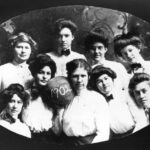






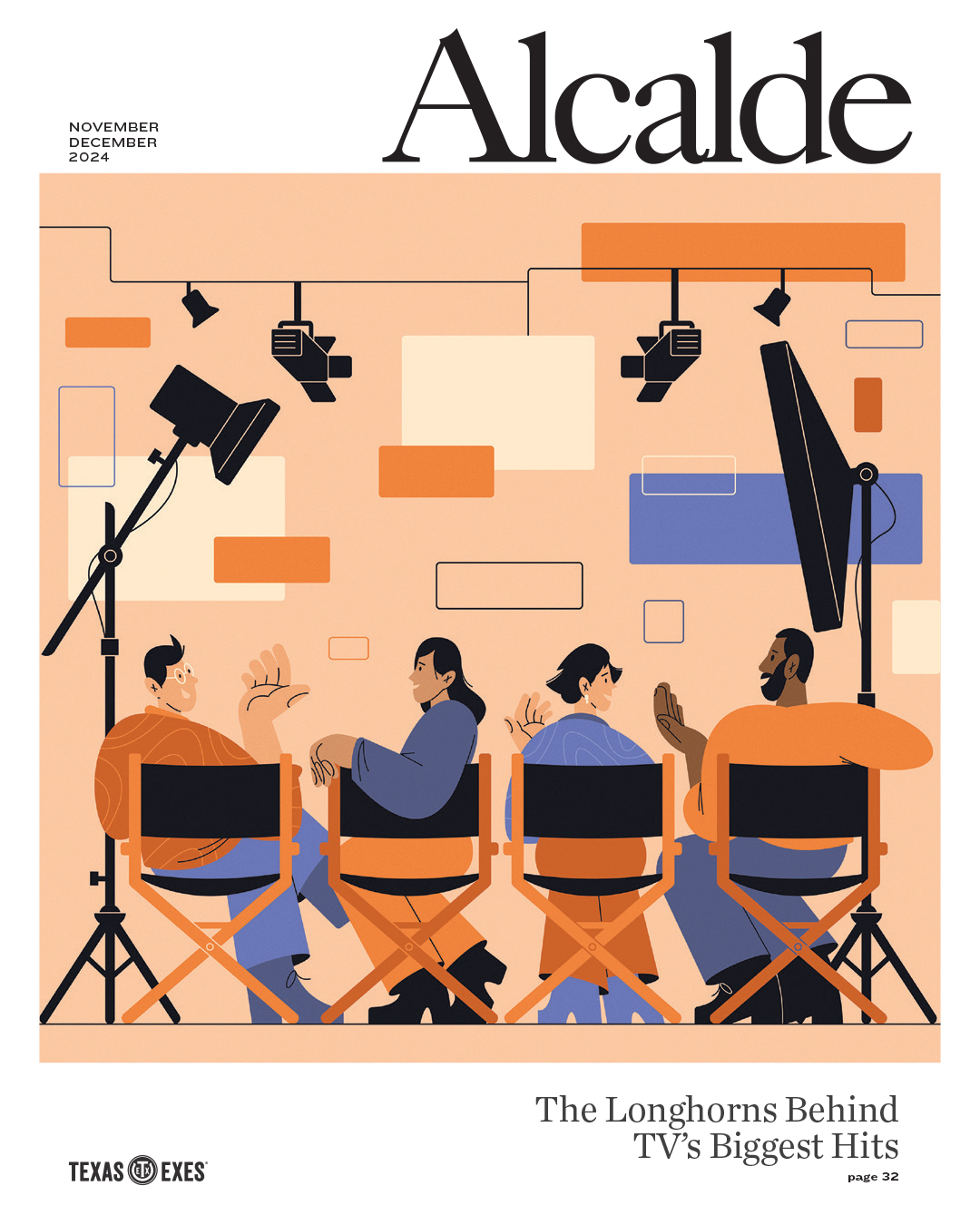



No comments
Be the first one to leave a comment.